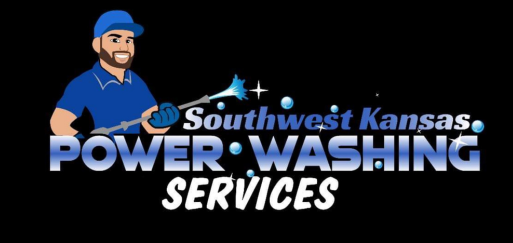How Often Should You Pressure Wash Your Driveway?

You should wash your driveway every 6 to 12 months to keep it clean, prevent damage, and maintain curb appeal. However, how often you wash it depends on several factors:
Your driveway takes more abuse than nearly any other surface around your property. Dirt, oil, mildew, tire marks, salt, and even algae — it all builds up, settles in, and stains deep. Regular pressure washing isn’t just a matter of aesthetics — it’s a smart, preventative investment in your property’s safety and longevity.
Let’s answer the big question first.
How Often Should You Pressure Wash?
Use this quick-reference chart to decide how frequently your driveway should be cleaned based on its usage and environment:
| Driveway Condition | Recommended Frequency | Why It Matters |
|---|---|---|
| Normal residential use | Once a year | Prevents gradual staining and surface wear |
| High traffic or frequent oil/tire stains | Twice a year | Reduces deep staining and extends driveway life |
| Shady, damp, or mold-prone areas | Every 6 months | Controls mildew, algae, and slick buildup |
| Planning to seal, resurface, or paint | Always before the project | Ensures optimal bonding and professional finish |
One Time a Year: The General Rule
Most homeowners can maintain a fresh, clean driveway with a once-a-year pressure wash. This clears off buildup, restores brightness, and prevents mildew from gaining ground.
Best Timing: Early spring or fall, depending on your climate.
Twice a Year: For High-Traffic or Heavily Soiled Areas
Busy households, work vehicles, or older driveways that stain easily should be cleaned twice a year. A spring and fall schedule helps manage oil leaks, road salt, and tire grime.
Why it matters: Letting those contaminants sit too long can cause permanent etching or weakening.
Every 6 Months: For Shady, Mold-Prone Spots
If you’ve got tree coverage, frequent rain, or a poorly drained area, mildew can grow fast. In this case, a biannual wash keeps things safe and clean.
Safety Tip: Algae and mildew are often invisible until they become slippery — don’t wait for an accident.
Before Any Sealing or Surface Work
Always power wash before sealing or coating your driveway. If grime is trapped underneath, the sealant won’t stick — and you’ll end up with flaking, peeling, or trapped stains.
Clean surface = Strong bond = Long-lasting results.
What Affects How Often You Need It?
Weather and Climate
If you live in a region with heavy rain, snow, or frequent dust, you're more likely to need cleanings at least twice a year. Damp areas foster mildew; dry zones collect grime.
Driveway Material
- Concrete: Very porous — absorbs stains, benefits most from pressure washing.
- Asphalt: Softer — must be cleaned gently but still builds dirt and oil.
- Pavers/Brick: Susceptible to algae and mold between joints — needs low-pressure, surface-safe cleaning.
Vehicle and Foot Traffic
More use = more buildup. If your cars leak oil, leave tire marks, or your driveway doubles as a work zone, you’ll need more frequent washes.
Trees, Shade, and Drainage
Tree cover means sap, leaves, and shade — all of which can create mildew or slick moss patches. Poor drainage? Even worse. Moisture + grime = fast stain formation.
Signs It’s Time for a Pressure Wash
- Black, green, or brown discoloration
- Oil rings or rust stains
- A slippery or greasy surface when wet
- Visible mildew or algae in cracks and edges
- The “white chalk” color of your concrete looks dingy or faded
If you notice any of these — it’s already time.
DIY vs. Hiring a Pro: What You Need to Know
Renting a machine might seem like an easy fix, but it comes with trade-offs. Most hardware store units top out at 2,000 PSI — and don’t come with the commercial-grade tools or detergents needed for deep cleaning.
Professional Pressure Washing Offers:
- Higher PSI equipment (3,500–4,200 PSI with high flow rates)
- Surface cleaners for streak-free, even results
- Concrete-safe nozzles that don’t etch or scar your driveway
- Degreasers and pre-treatments that break down stains before blasting
- Trained technique that prevents damage to seams, joints, or landscaping
DIY can work — but if you’re dealing with embedded stains, time constraints, or prepping for sealing, hiring a pro will save you time, water, and guesswork.
Why Pressure Washing Your Driveway Matters
A clean driveway does more than just look good — it protects, prevents, and preserves. Here’s why this routine task pays off:
- Boosts curb appeal instantly
- Removes harmful buildup like mildew, oil, and algae
- Prevents erosion, pitting, and cracking in the surface
- Improves safety by eliminating slippery or hazardous zones
- Prepares surfaces for sealing or repair work
If you’ve been putting it off, your driveway may already be sending signals that it’s overdue.
Final Thoughts: Keep It Clean, Safe, and Sharp
Your driveway is more than just a parking spot — it’s the first impression your home makes. Regular pressure washing isn’t cosmetic — it’s essential. Whether once a year or every few months, taking care of your driveway protects your investment and boosts the beauty and safety of your property.
Need help choosing the right schedule or method?
Consult with a pro who understands surfaces, stains, and pressure — because blasting blindly can do more harm than good.
CONNECT WITH YOUR LOCAL POWER WASHING SPECIALIST TODAY!
